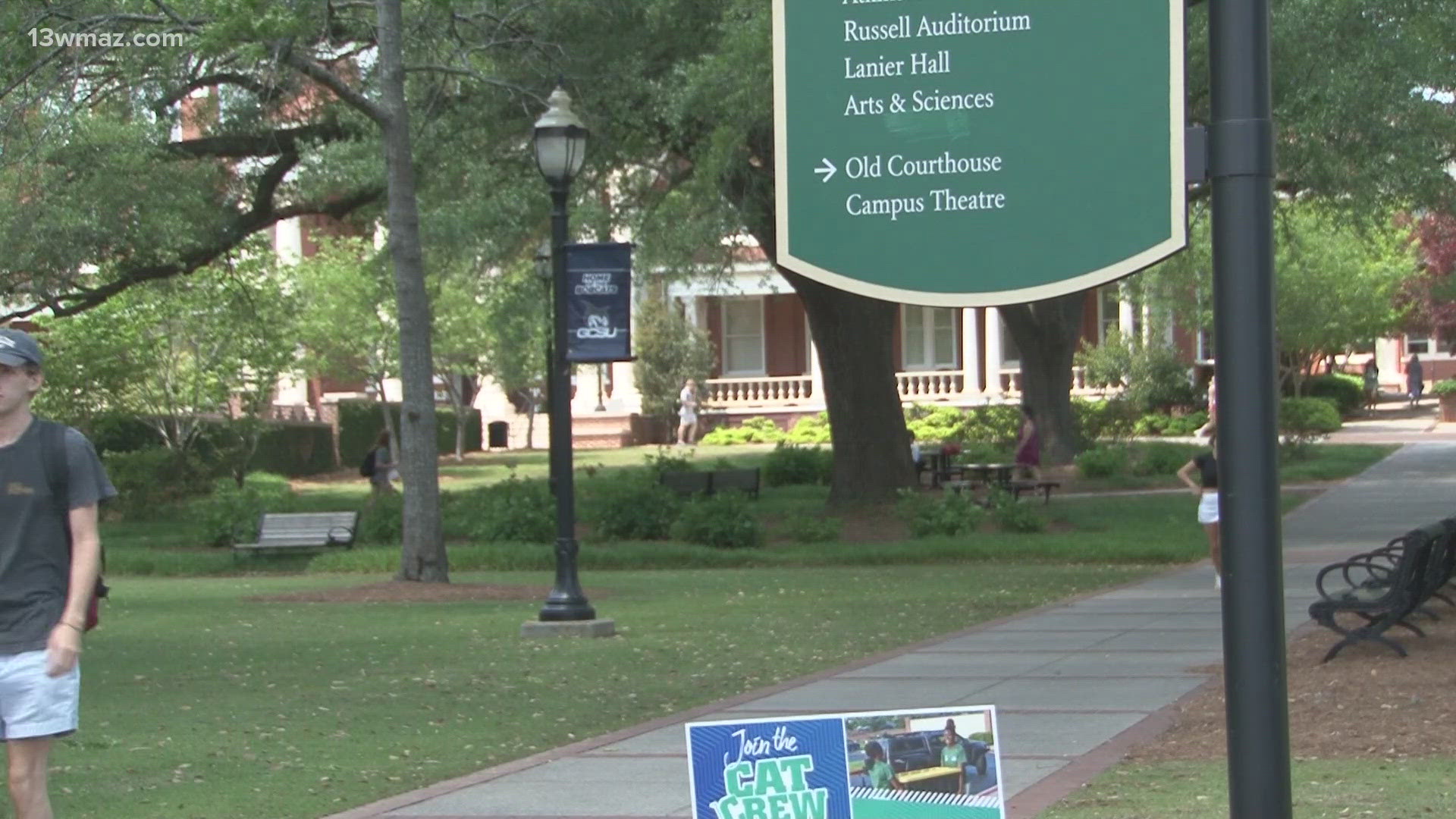MILLEDGEVILLE, Ga. — On a sunny spring day in Milledgeville, Georgia College & State University nursing freshman Finn Goss talked with a friend under a shady tree.
It was business as usual. No protests. Nothing out of the ordinary. It's a sharp contrast from unrest on other college and university campuses this week.
At some schools, protestors set up encampments demanding administrations cut ties with companies that do business with Israel. Tensions were high Thursday at Emory University in Atlanta as a heavy police presence cleared an encampment—leading to 28 arrests.
At Kennesaw State University, students walked out of their classes in protest. Georgia Institute of Technology also saw demonstrations. At Georgia College about 95 miles southeast of midtown Atlanta, things were the same as always.
"Same old same old," Goss said. "It's finals week, so it's been busy. So, I don't know if I've been so locked in, I haven't had time to hear anything else."
The college has seen some impact from the war in Gaza. The Colonnade, Georgia College's newspaper, reported last month someone wrote chalk messages supporting Palestine around the campus' Bobcat emblem.
Freshman English major Khyia Williams says the messages weren't there long.
"The next morning, the chalk was like, washed away and the flags were like, picked up," she said.
College Public Affairs Director Amanda Respess provided some clarity on that. She says it was removed because the school has special restrictions on the Bobcat.
Still, the university maintains students, faculty, staff and guests have the right to meet in public and express their views.
"The university does not limit speech based on controversial content or the point of view of the speaker; however, individuals who wish to speak on campus cannot use amplified sound, nor can they otherwise interfere with the duties and safety of students, faculty or staff conducting the normal operations of our campus community," Interim Vice President of Student Affairs Dan Nadler wrote in a statement.
Goss says besides the March event where the chalk was erased, he hasn't seen many, if any, signs of protest on campus.
"There are some people, I think it was some high schoolers doing a social experiment, to see what the college kids would do. So, they would dress up in random costumes and stuff. But that's as close as I've seen, and I haven't seen many protests around here," he said.
Nadler says the college is watching demonstrations at other campuses, and Respess says they don't anticipate any changes to upcoming commencements. Respess says their goal is to provide a positive experience for graduates and their families, and that safety is always their top priority.
“We want people to be expressive with their First Amendment rights on our campuses without being shouted down or called out as a matter of mutual respect and civil discourse. Our institutions will do everything they can to support the right to peaceably assemble and will not tolerate violence or disruptions that hinder the safety and security of our faculty, staff and students," University System of Georgia Chancellor Sonny Perdue wrote in a statement Friday.
Mercer University, which is a private institution, declined comment on the unrest at other Georgia campuses. This month, Mercer University Police arrested a student who allegedly interrupted a conservative speaker on campus. The student allegedly put her hands on the speaker after they argued about statistics from the Israel-Hamas war. She was charged with simple battery.
You can read Nadler's full statement here:
"Georgia College & State University campus administrators are cognizant of the pro-Palestinian demonstrations taking place on campuses around the country and in our own state.
Protecting free speech as a fundamental right means that Georgia College allows different viewpoints to be expressed. The law permits reasonable time, place and manner restrictions to allow for regulation of use of campus facilities to support university missions of teaching, education, research, student success, providing residential communities and other forms of learning.
Students, faculty, staff and guests can publicly assemble in unrestricted outdoor areas of campus. The university does not limit speech based on controversial content or the point of view of the speaker; however, individuals who wish to speak on campus cannot use amplified sound, nor can they otherwise interfere with the duties and safety of students, faculty or staff conducting the normal operations of our campus community."

